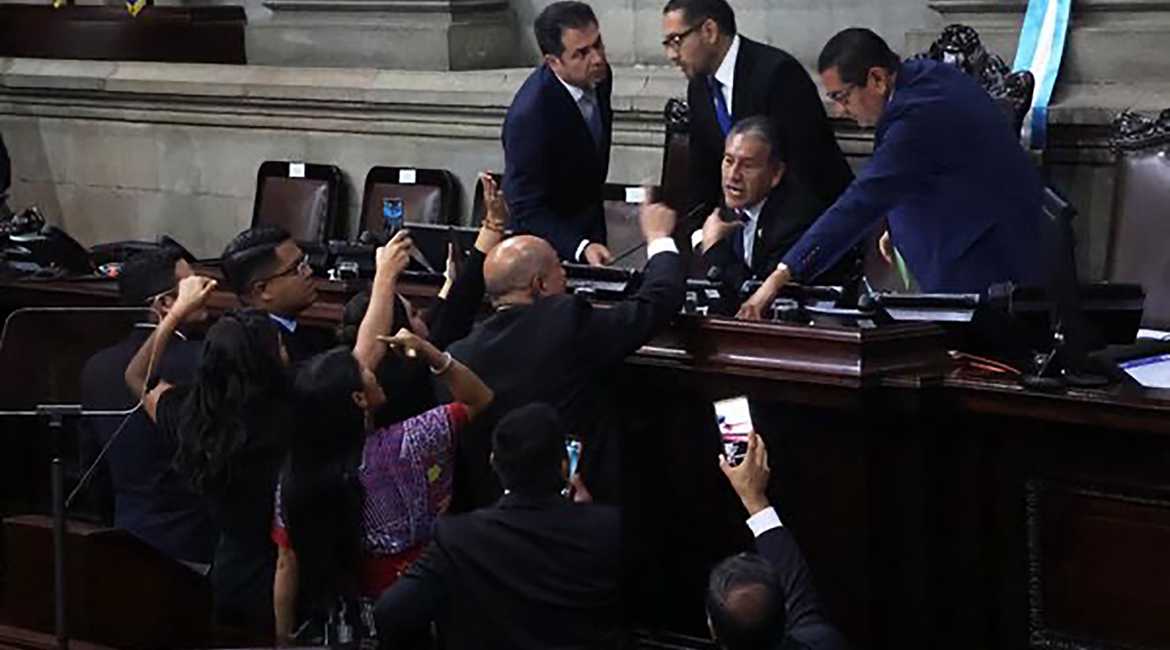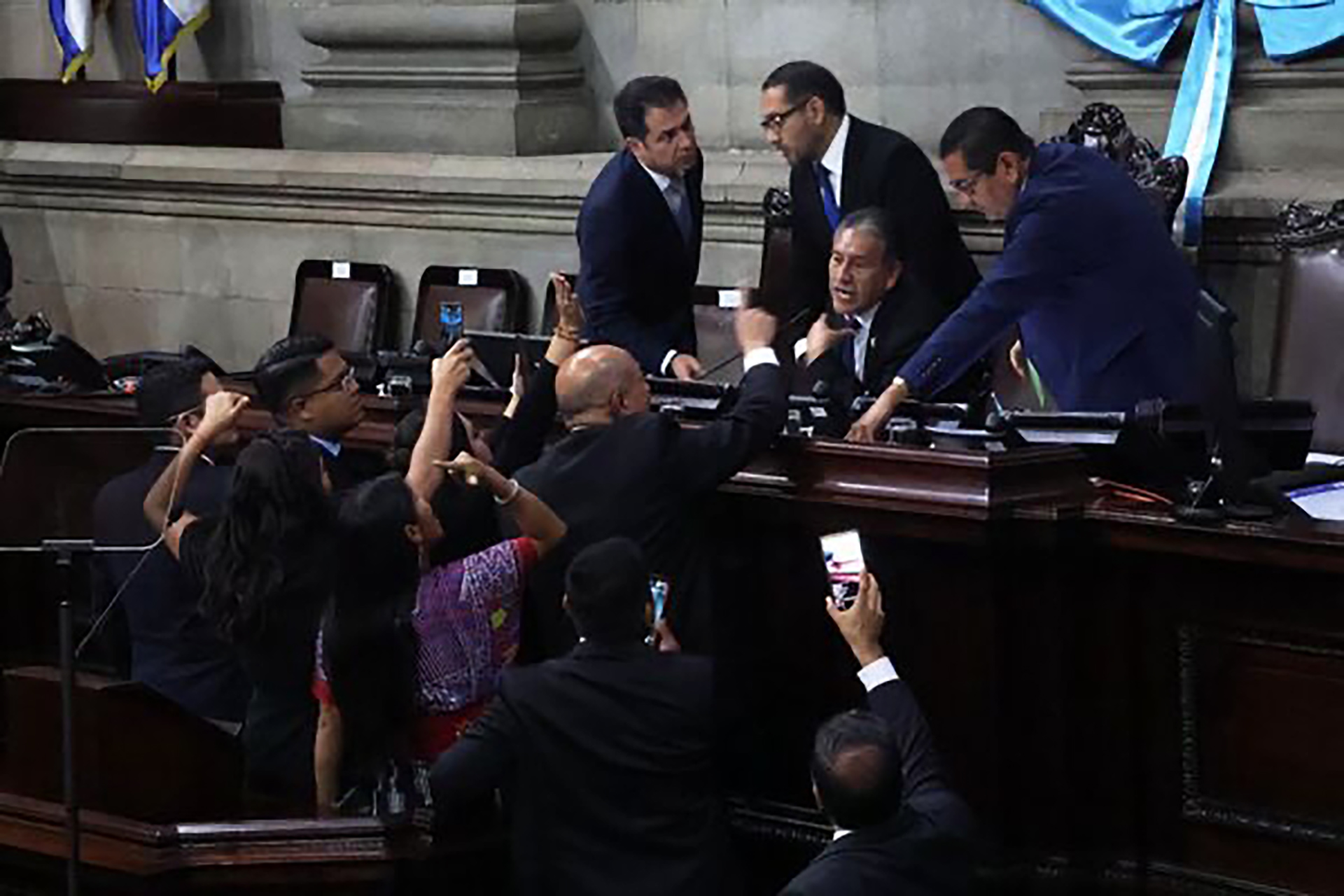
Date Posted: 17-Jan-2024
Publication: Jane's Intelligence Review
Guatemala has inaugurated a new president after a complicated election process. Janes examines the delays in the official ceremony and the factors behind the country's tensions over the past six months
Key points
- Guatemala's new President Bernardo Arévalo faced delays in being sworn in, throwing uncertainty over the transfer of power after a complex election period
- The outgoing Congress and the Attorney General's Office brought instability and uncertainty to the transfer of power, with the Constitutional Court of the Supreme Court of Justice acting as counterweight protecting Guatemala's constitutional order
- As long as the current Attorney General's Office remains in office, it is very likely that the institution will actively seek to attack the president, his close allies, and members of the party
Transfer of Power
The inauguration of Guatemala's President Bernardo Arévalo on 14 January culminated a drawn-out electoral process marked by social and political instability. The inauguration took place in a context of uncertainty and tension over the possibility that the transfer of power would not take place after a complex electoral period.
According to Guatemala's constitution, the inauguration had to be held no later than 1600 h local time on 14 January. In the end, Arévalo was sworn in eight hours after this deadline had passed. The delay was attributed by the new members of Congress, allied to Arévalo, to the outgoing Congress' intention to hinder the transfer of legislative and executive powers. For a new president to be sworn in, the members of the new Congress must first be sworn in, then the new Congress must establish the new governing board, or junta directiva, which is responsible for conducting the handover of power so that the new president can be sworn in. Delays in each of these steps resulted in the delay to Arévalo being sworn in.
The chain of delays preceding the inauguration occurred as follows:
- Delays in the swearing in of the new Congress by the outgoing Congress: According to deputy-elect Román Castellanos in an interview with the Associated Press on 14 January, the swearing-in of new members of Congress was delayed because the outgoing commission took too long to assess the new deputies' credentials, and he alleged that the commission was “asking for requirements not established in the law in order to take office”, without specifying what requirements he was referring to. Once the process was completed, the debate on the new governing board began.
- Suspension of Movimiento Semilla party members in Congress: The second delay was caused by the decision of the outgoing Congress on the morning of 14 January to declare all members of Arévalo's party – Movimiento Semilla – as independents. This is because on 2 November 2023 the Citizens' Registry suspended the legal status of Movimiento Semilla for a second time, alleging irregularities in the party's official registration process. Although the suspension did not cancel the party's registration, it meant that the party could not conduct administrative tasks, such as sitting on the governing board. This led to a dispute between lawmakers over the formation of the new governing board, resulting in the temporary suspension of the process.
- Suspension overturned: Once the process had resumed, and all the new deputies had been sworn in, the new Congress decided to overturn the decision of the outgoing Congress and reinstate the Movimiento Semilla deputies, approving a motion to recognise the party as a legislative bloc. This allowed the formation of the new governing board for the period 2024–25 and, consequently, the transfer of power to Arévalo as president and Karin Herrera as vice-president.
During the eight-hour delay, demonstrations led by Arévalo supporters took place outside Congress. Meanwhile, the secretary general of the Organization of American States (OAS), Luis Almagro, in an improvised press conference in Guatemala City, read to the press a joint declaration signed by heads of state, foreign ministers, and senior officials of other governments attending the inauguration, calling on Congress to hand over power to Arévalo and Herrera.

Members of Congress argue during the session to elect the governing board, or junta directiva, before the inauguration ceremony of Guatemala's President-elect Bernardo Arévalo in Guatemala City on 14 January 2024. (María José Bonilla/AFP via Getty Images)
Electoral process
Since the first round of voting took place on 25 June 2023, the whole electoral process has been marked by social and political instability. Although the voting in both rounds was conducted in a transparent and organised manner, despite some isolated incidents of violence, it was the state institutions that brought instability and uncertainty to the process. In particular, judicial institutions such as the Attorney General's Office and the Special Prosecutor's Office against Impunity (Fiscalía Especial Contra la Impunidad: FECI), but also at one point, the presidency of the Supreme Court of Justice, obstructed the process in the periods before and after the voting days, while the Supreme Electoral Tribunal (Tribunal Supremo Electoral: TSE) and the Constitutional Court of the Supreme Court of Justice acted as counterweights, guaranteeing the protection of the results of the two rounds of voting, and of the constitutional order.
Since the TSE announced in June 2023 that the second round would take place between Arévalo and Sandra Torres, often referred by Guatemalan press as the candidate of the ruling political establishment, the risk of instability in Guatemala has been heightened by the actions of the Attorney General's Office and the FECI, both of which have opened investigations into the electoral process, suspended the registration of the Movimiento Semilla party twice, and raided the TSE headquarters, taking official records of the first-round results.
The most recent attempts of the Attorney General's Office to block Arévalo's ascension to the presidency took place on 16 November 2023, when the Public Prosecutor's Office accused Arévalo and Herrera of allegedly committing crimes during their participation in a demonstration at the University of San Carlos in 2022. On 16 November the Attorney General's Office announced that it had requested Arévalo and Herrera be stripped of their immunity on charges of aggravated misappropriation, destruction of cultural property, and illicit association. On 14 December the Constitutional Court granted a definitive appeal, known as amparo, against the prosecution's case against Arévalo and Herrera to “safeguard the constitutional order” and with the “ultimate aim of preserving the rule of law”.
The actions of the judicial institutions led to nationwide protests towards the end of 2023 by citizens demanding the resignation of Attorney General Consuelo Porras, FECI head Rafael Curruchiche, and judges Fredy Orellana and Cinthia Monterroso.


